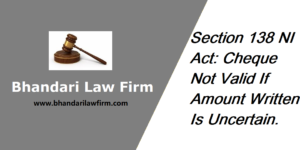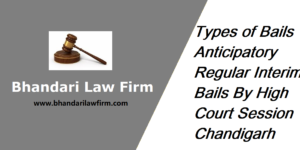WRITS UNDER INDIAN CONSTITUTION
To begin with the concept of writs in the Indian constitution, it is mandatory to understand the concept of fundamental rights. Fundamental rights are contained in part III of the Indian constitution. Fundamental rights secure to the people of India fundamental, basic, and natural rights. This chapter is known as the Bill of Rights for the people of India. The constitution not only declares these fundamental rights but it also provides a speedy remedy for the enforcement of these rights and the remedy for their enforcement is itself declared a fundamental right. These are meant for the development of individual personality and for the protection of citizens against arbitrary government. Various fundamental rights such as the right to equality, right to freedom, right to freedom of religion, educational and cultural rights, rights to constitutional remedy etc have been included in the constitution. Further, the judiciary is the guardian of all these rights, as the citizens possess the right to constitutional remedies.
One of the most important right out of them is the right to constitutional remedies. This right empowers the citizens to move to a court of law in case of any denial of the fundamental rights. For example, in the case of imprisonment, citizens can ask the court to see if it is according to the provisions of the law of the country. If the court finds out that it is not, the person will have to be freed. This procedure of asking the courts to preserve and safeguard the citizen’s fundamental rights can be done in various ways that are by the way of writs.
Therefore, a writ can be defined as a legal document written by a judge or other body with administrative or judicial jurisdiction, such as a court, that orders the person to whom it is addressed to perform or cease to perform a specified function. The writs usually issued under the writ system must be agreeable to the usages and principles of law.
There are five types of writs :
-
Habeas corpus
-
Mandamus
-
Certiorari
-
Prohibition
-
Quo warrant
Article 32 and Article 226 confers powers on both the high court and the supreme court respectively for the exercise of writ jurisdictions. Article 32 is the most important of all the articles and an article without which the constitution would be a nullity. It is the article that makes the supreme court the guarantor of fundamental rights, as in case of their infringement any person can directly approach the supreme court of India for the redressal of grievances.
Writ of Habeas Corpus – “habeas corpus” is a latin term which literally means “you may have the body”.
A writ of habeas corpus is used to bring a prisoner or other detainee before the court to determine if the person’s imprisonment or detention is lawful. The object of the writ is to give a quick and immediate remedy to a person for a quick and immediate remedy to a person for unlawful detention. A writ of habeas corpus is an order from a judge to bring a prisoner to court. This writ is said to be a writ of the highest constitutional privilege of the citizen or the first security of civil liberty. When will it lie- a writ of habeas corpus will lie if the power of the detention vested in authority was exercised malafide and is made in collateral purposes. But if the detention is justified, the high court or the supreme court will not grant the writ of habeas corpus. The detention becomes unlawful if a person who is arrested is not produced before the magistrate within 24 hours of his arrest and he will be entitled to be released on the writ of habeas corpus. Case-ADM, Jabalpur v. Shivkant Shukla : This case is known as habeas corpus case, here it is explained, what is a writ of habeas corpus mean? Quoting Justice Khanna “writ of habeas corpus is a process of securing the liberty of an aggrieved person by providing an adequate method for immediate relief from wrongful or illegal detention. Whether the person kept in wrongful custody is in prison or under private custody of an individual.” and after the inquiry regarding the cause of his imprisonment by the High Court and the judges of that court, if it is found that there is no legal jurisdiction for that incarceration, the aggrieved person is ordered to be released from custody.
Mandamus – the word ‘mandamus’ means the order. WRITS IN INDIAN CONSTITUTION
It is an order issued by a court commanding a public authority to do some particular act which appertains to its office and is in the nature of public duty. When it is issued? Mandamus is issued only when a legal duty is imposed on a public authority in the performance of which the petitioner has a legal right. When it will lie? Mandamus will lie when there is a failure to perform a mandatory duty. The petitioner must show that he has made a demand to enforce that duty and the demand was refused. The main object of it is to compel a public officer to perform his duty. When it will not lie? A writ of mandamus will not lie in certain circumstances like a writ of mandamus cannot be granted to enforce an obligation arising out of the contract, a writ of mandamus does not lie against a private individual or any private organization because they don’t have a public duty. Case- State of Mysore v K.N.Chandrasekhara In the given case high court has issued a writ of mandamus directing the public service commission to include the names of the six petitioners in the list prepared by the Commission under Rule 9(2) of the Rules for appointment to the cadre of Munsiffs. In the view of the High Court the appointment of ten candidates whose names were included in the list under R. 9(2) as fit for promotion could not be disturbed, yet the six applicants should be added to the list and appointments should be made out of that list. Such direction as given by the high court to public service commission can also be issued against any person or body corporate also to perform their public duty.
WRITS IN INDIAN CONSTITUTION
Quo-Warranto – ‘quo warranto’ means what is your authority or warrant your authority.
The object of this writ is to prevent a person to hold an office that he is not legally entitled to hold. Who can use this writ? The writ of quo warranto can be claimed by a person if he satisfies the court that: office in question is a public office, it is held by a person without legal authority, the office must be substantive in character. When it will not lie? If the office is of private character the writ will not lie. Case- University of Mysore v C.D. Govind Rao Facts- the respondent claim that appointment of appellant no. 2 is illegal as he does not fulfill the first condition mentioned in the advertised inviting application. In respect of which High Court issued the writ of quo warranto and held the appoint of respondent no. 2 (Anniah Gowda) illegal. The Appellant raises an appeal before the Supreme Court. The decision of the High Court was held incorrect by the court, as High Court didn’t take into consideration the degree of Master of Arts of the Durham University obtained by Anniah Gowda. It was held that the High Court is correct in finding that Anniah did not possess a high second class degree of an Indian University but he did possess the alternative qualification of Master of Arts of a foreign University.
(Click Here To About Property Rights of Women in India)
Prohibition – the term prohibition means to prohibit.
A writ of prohibition is issued to prevent an inferior court or tribunal exceeding its jurisdiction or acting contrary to the rules of natural justice. The writ is a jurisdictional writ. The writ is issued in both cases where there is an excess of jurisdiction or where there is an absence of jurisdiction. Case- Govinda Menon v Union of India In this case the Supreme Court has explained the jurisdiction of the court for grant of a writ of prohibition. It says that power to issue the writ of prohibition is primarily supervisory and the main objective behind the writ of prohibition is to restrain inferior courts or tribunals from exceeding their jurisdictional limits. It is well-settled law derived from decided cases that writ of prohibition lies not only in case of excess of jurisdiction or for abuse of judicial power but writ lies also in cases of where the actions are taken in contravention to the rules of Natural Justice. Case- Hari Vishnu Kamath v Ahmad Ishaque In the above case supreme court held that in cases where there is a requirement for the prayer of certiorari as well as prohibition and the in the application not a prayer of certiorari has been made then it would be open to the court to issue the writ and stop further proceedings which are affecting the decision. But in case the proceedings have ended then seeking for prohibition will be too late and writ of certiorari must be a proper remedy for quashing. Clearing on the point it was also held that writ of prohibition will lie when the proceeding is pending to a large extent and writ of certiorari will be issued when then the case has been terminated in a final decision. Where the proceedings of inferior courts are partly within the jurisdiction and partly without it, then the writ of prohibition will lie to the extent of the excess of jurisdiction.
Certiorari – certiorari means to certify. WRITS IN INDIAN CONSTITUTION
This writ is an order issued to an inferior court or tribunal to transmit to it a record of proceedings sending them for scrutiny and if necessary for questioning the same. It can be issued to a judicial or quasi-judicial body on the following grounds – where there is a want of excess of jurisdiction, violation of principles of natural justice, the error of law apparent on the face of the record. This writ cannot be issued against a private body. Both prohibition and certiorari are common as both the writs help in restraining the inferior courts. Case- Gullapalli Nageswara Rao v A.P. SRTC Supreme Court held that fundamental principle of natural justice states that both the parties to the case be given equal opportunity to make their representation but where it is expressly provided in the act a right to a personal hearing then the authority deciding the case must hear the case personally. The procedure followed in the instant case whereby the Home Secretary, in charge of Transport, himself a party to the dispute, heard the objections and the Chief Minister decided them, violated those principles, and the order of the State Government approving the scheme, therefore, must be quashed
WRITS IN INDIAN CONSTITUTION
Conclusion: So concluding the present article it can be inferred that the writ jurisdictions of the high court and the supreme court under article 226 and article 32 of the constitution of India respectively is the most important of all. Had there been no constitutional remedies made available for the citizens of our country, they would have suffered a lot at the cost of the public authorities. As we know fundamental rights are given to us by the state then they may be infringed by the state as well. So writs act as an effective measure in case of infringement of fundamental rights by the state.



